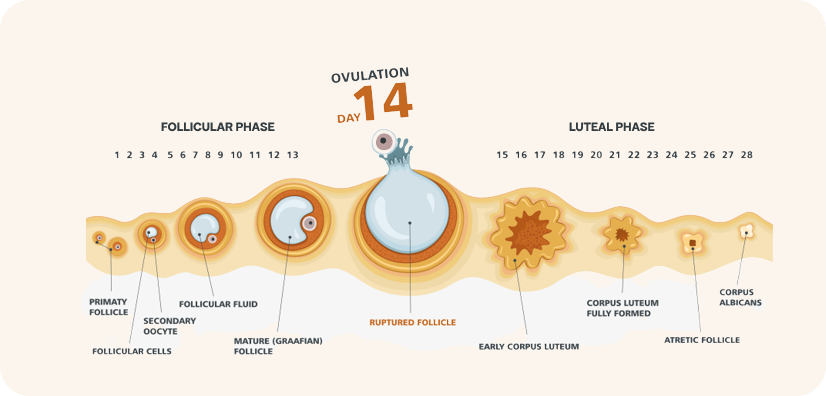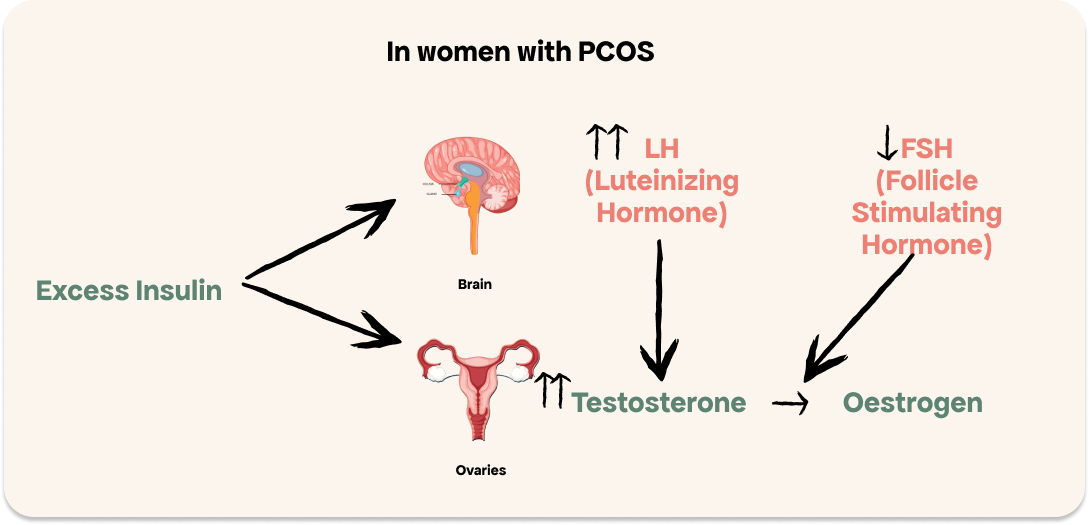Hello lovely people,
I hope you enjoyed reading Eden’s PCOS story last week. This week we return to more science topics and discuss why ovulation fails in women with PCOS.
Why some women with PCOS don't ovulate?
There are three different mechanisms by which ovulation fails in women with PCOS:
An imbalance between LH:FSH (Luteinising Hormone: Follicle Stimulating Hormone)
Sensitivity to LH
Excess insulin in the blood (coming from Insulin Resistance)
Before jumping into why ovulation stops and how these mechanisms occur, we must review how ovulation works quickly.
Ovulation
Early into a new menstrual cycle (after the period), the ovaries start maturing several follicles.
Follicle = A small, fluid-filled sac in the ovary that contains one immature egg. There are thousands of follicles in the ovaries.
One follicle gets chosen at a certain point through the first part of our cycle. Under the influence of Follicle Stimulating Hormone, Luteinising Hormone and Oestrogen, this follicle grows till it breaks and releases an egg = ovulation 🎉.
On average, this happens on day 14, but this is not set in stone. Some people ovulate later, and some people sooner.
What goes wrong with our ovulation?
If you have irregular periods, you might not be ovulating regularly. Ovulation can still happen, but it might be more sporadic.
The ovulation fails because our follicles never mature enough to release an egg. Development stops. Because it doesn’t mature, it transforms into a cyst on the ovaries, giving the classic polycystic ovaries.
But, why does it stop?
LH:FSH ratio and sensitivity to LH
The answer to this is within our hypothalamus and ovaries.
Under the influence of the Luteinising Hormone, our Hypothalamus tells our ovaries to produce Testosterone. At the same time, Follicle Stimulating Hormone tells our ovaries to convert that Testosterone into Oestrogen. With rising Oestrogen, the follicle keeps growing.
(If this is confusing, I recommend watching the video above.)
This is where an imbalance between LH:FSH and the sensitivity to LH come into play.
An increased level of LH means that we produce too much testosterone. FSH usually can’t keep up to convert it to Oestrogen. Not having enough oestrogen to grow the follicle means that it stops developing. In addition, cells within our ovaries seem more sensitive to LH and react more. All of this leads to excess testosterone and failed ovulation.
Excess Insulin
In addition to the imbalance between LH and FSH, excess insulin can further put fire on this mechanism by increasing LH and accelerating testosterone production.
Reducing insulin levels, eating a nutrient-rich diet, exercising regularly and taking certain supplements can help bring the LH: FSH within balance to restore ovulation.
I hope you enjoyed this newsletter. If you are curious about PCOS, please don’t hesitate to submit your question here.
See you next Sunday,
Francesca
1 Sources
Franks, S., & Hardy, K. (2020). What causes anovulation in polycystic ovary syndrome? Current Opinion in Endocrine and Metabolic Research, 12, 59–65. https://doi.org/10.1016/j.coemr.2020.03.001
Disclaimer: We are all unique in our ways, so this information is for educational purposes only. In my communications, I summarise research data and bring my experience. This shouldn’t be viewed as medical advice at any point. Please further consult your healthcare provider about your health needs.








